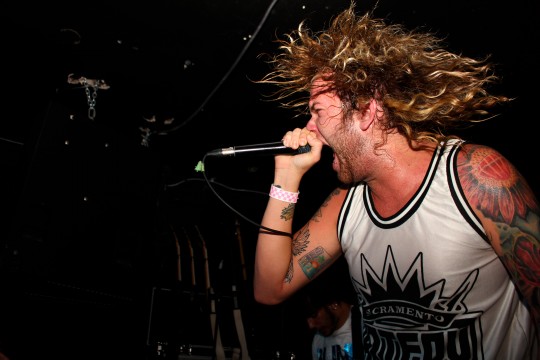Fresh off a Salmonella outbreak that sickened at least 425, Kung Fu Kitchen & Sushi figured they’d dip into the lucrative food porn pool and start offering sushi served on naked men and women to the tune of $500 per “human platter” last month.
They discovered that if you put wasabi on your nipples, they’ll burn for a week.
“There’s a lot of things you don’t think about when it comes to naked sushi,” restaurant owner Nathan Lieberman told ABCNews.com. “Now, we put plastic over the nipples, like Saran, and  then we cover the nipples in wasabi.”
then we cover the nipples in wasabi.”
Lieberman said naked sushi was the brainchild of Chef Glenn Lopez, who works in the kitchen. Lieberman figured the Japanese have been dining off naked bodies for “thousands of years” and wanted to give his patrons “the royal treatment” for Miami Spice, the city’s restaurant month, he said.
Initially, Lieberman said he was going to hire models from a modeling agency, but his servers begged him for the job.
Kung Fu’s most recent restaurant inspection occurred in May and included seven critical violations – one of them being a lack of soap for handwashing.

 USA Corporation.
USA Corporation. is the likely source of this outbreak. Consumers should not eat the recalled product, and retailers should not serve the recalled raw Nakaochi Scrape tuna product from Moon Marine USA Corporation.
is the likely source of this outbreak. Consumers should not eat the recalled product, and retailers should not serve the recalled raw Nakaochi Scrape tuna product from Moon Marine USA Corporation. Act regulations but an impromptu inspection in August 2011 found numerous breaches.
Act regulations but an impromptu inspection in August 2011 found numerous breaches. been hospitalized, and no deaths have been reported.
been hospitalized, and no deaths have been reported. around voice.
around voice..jpg) outbreak.
outbreak. had to escape the Food Safety Summit in D.C. to catch up. He told me one of the industry types said everyone uses this stuff, which has helped propel the popularity of sushi eating.
had to escape the Food Safety Summit in D.C. to catch up. He told me one of the industry types said everyone uses this stuff, which has helped propel the popularity of sushi eating.